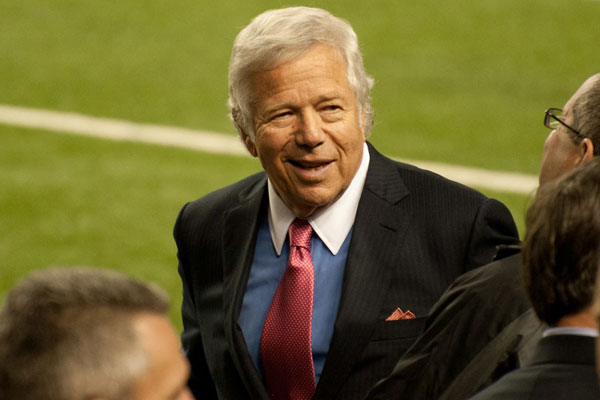
May 7, 2019; Deseret News
For some time, a Catholic charity that runs a school for poor children in Haiti had been trying to get a donation from Robert Kraft, the owner of the New England Patriots. As Kraft was embroiled in a Florida prostitution sting, he offered the school a $100,000 donation, which would have gone a long way in sustaining its programs. Patrick Moynihan, the charity’s director and a Roman Catholic Deacon, turned down the donation publicly the same day, claiming, “I could not be silent. I had to stand up.”
Later, he clarified to a local Boston sports station that the real barrier to taking the donation was that Kraft had not apologized properly:
The thing that hasn’t been covered is that we responded to the offer saying very clearly we were willing to work with Mr. Kraft to make his offer acceptable, but that would be contingent upon him taking responsibility for his actions. Not that I’m here to judge him, that’s between him and God. I’m a sinner myself, and we’re all in need of God’s mercy. What we were suggesting to Mr. Kraft, through our communication, is if he was serious about reclaiming his public reputation and repairing that—we felt he was getting extremely bad advice. Better advice would be to take responsibility for his actions, denounce prostitution, which is part of the sex trade and cripples and cruel treats people, especially vulnerable people around the world, and especially women in developing countries. His lawyers are running everyday public servants through the mill for no reason.
Does someone who refuses to apologize properly deserve a second chance? This seems to be a recurring theme lately, but an appropriate one for a man versed in the fine points of reconciliation and atonement. (This may be a point for the Catholic Church as an institution to ponder more deeply.) Moynihan continued:
We’re not talking from a legal point of view. We’re talking from a civic point of view. Society is not being well-served by this situation. You don’t need a law degree to understand running civil servants through crucibles of testimony just because they were looking out for the common good and public health is not what the court system is for.
Sign up for our free newsletters
Subscribe to NPQ's newsletters to have our top stories delivered directly to your inbox.
By signing up, you agree to our privacy policy and terms of use, and to receive messages from NPQ and our partners.
I personally wrote to him in a letter offering to work with him on an authentic path to reclaim his reputation. That’s the job of every US citizen––to stand up for the law, stand up for good civic behavior.
Taking the high road for his school seems quite noble, but Moynihan is no rookie. After all, he had worked his personal relationships to get to Kraft in the first place, using his brother, who is the chairman of Bank of America, to get his organization noticed. His rejection and indignation drew attention and great press to his school that quiet acceptance of Kraft’s donation could not. Others may still step up and offer to fill the gap left by the rejected Kraft funds.
In other cases, nonprofits have rejected donors for the lack of fit between the work of the corporate donor and the work of the nonprofit. A case in point is the Texas nonprofit RAICES. They were offered a donation of $250,000 from Salesforce, based in Silicon Valley. But Salesforce has multiple contracts with US Customs and Border Protection, the agency charged with enforcing immigration law at the border—and therein lies a conflict. As executive director Jonathan Ryan wrote in an email to Salesforce, “Pledging us a small portion of the money you make from [the agency’s] contracts will not distract us from your continuing support of this agency. We will not be a beneficiary of your effort to buy your way out of ethical responsibility.”
Lastly, there’s the now-classic tale of the Girl Scouts of America, which turned down a $100,000 grant because it came with a restriction that none of the funds could be used for transgender girls. This was counter to the values of the Girl Scouts, so they said no, then set up a crowdfunding campaign to recoup the monies lost. They raised more than three times the initial sum—which certainly says something about maintaining your values!
Nonprofits operate with the public’s trust as a key part of their reputation. To jeopardize that trust in order to gain funding from a source that could be called into question, or whose requirements might push a nonprofit’s own standards and values, may not be worth the dollars gained in the short term. As Shari Rudolph, Good360’s chief marketing officer, puts it, “It’s not a good sign when you’re afraid to mention the donor’s name.”—Carole Levine and Ruth McCambridge












